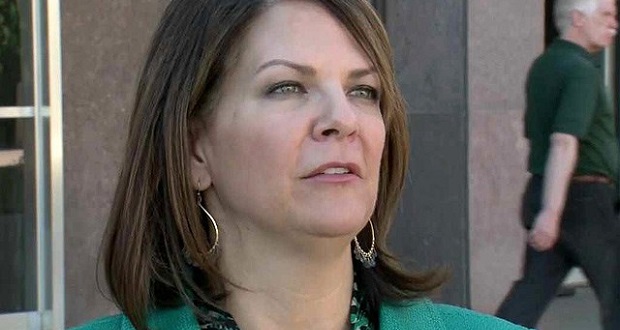Governor signs bill to repeal 2013 election reform law, kills referendum
Howard Fischer, Capitol Media Services//February 27, 2014//
Governor signs bill to repeal 2013 election reform law, kills referendum
Howard Fischer, Capitol Media Services//February 27, 2014//
 It’s official: Arizonans won’t get the last word on a series of controversial changes in state election law.
It’s official: Arizonans won’t get the last word on a series of controversial changes in state election law.
Without comment, Gov. Jan Brewer signed legislation Thursday to repeal the 2013 law. More to the point, by repealing the law the governor killed the referendum drive that had held up enactment until the voters made the final decision.
Democratic lawmakers who opposed the 2013 law sought to keep the referendum on the ballot, saying voters deserved to have their say. Foes of the changes gathered more than 146,000 signatures on petitions to put the law on “hold” pending the election.
But Democrats also were interested in attracting voters to the polls in November who objected to the changes forced through by the Republican-controlled Legislature. That included limiting who can take someone else’s early ballot to polling places, erecting some new procedural hurdles in the path of citizens proposing their own laws, and requiring minor parties to get far more signatures to get their candidates on the ballot.
Republicans responded that they were simply obeying the will of voters who made it clear they did not like one or more portions of the 2013 law.
But what concerns those who were opposed to the original law and gathered the signatures to put the question to voters is the chance of an end-run by Republicans.
With the 2013 law and the referendum now dead, that frees the GOP majority to reenact all or part of what was in the original law.
Rep. Eddie Farnsworth, R-Gilbert, who led the repeal effort, said he had no plans to do so.
But Farnsworth could not make that promise for other Republicans. And even House Speaker Andy Tobin said he believes that some portions of what was in that 2013 law, like allowing county officials to remove some people from the permanent early voting list, may have merit.
The issue there is that that those who sign up are automatically mailed ballots before every election. Voters can mark them and mail them back or take them to a polling place.
Some county recorders have complained that people on that list ignore those ballots mailed to them and instead show up at polling places on Election Day. That requires these people to vote a “provisional ballot,” forcing election officials to go through the time-consuming check to be sure that an early ballot was not also returned.
Foes of the change said that problem could be resolved through better voter education.
If lawmakers reenact one or more provisions of the now-repealed law, that would force foes to start over again with a new petition drive to put the question to voters.
Other changes that were in the original law that could now be reenacted include:
– Changing the rules that govern voter-proposed initiatives to require stricter compliance with rules;
– Barring members of certain groups from collecting early ballots from voters and taking them directly to polling places;
– Sharply boosting the number of signatures necessary for Libertarian and Green party candidates to qualify for the ballot.
Proponents of that last point conceded during the 2013 debate they had political motives.
Rep. J.D. Mesnard, R-Chandler, argued that people try to “manipulate the outcome of elections by putting third-party candidates on the ballot.”
“All they have to do right now is get a dozen or 15 signatures and on the ballot they go,” Mesnard said, saying he was aiming his comments at the Republicans who control the Legislature. And he claimed that at least one congressional race and maybe two did not go “in the direction I would have liked to have seen them go” – and would have gone, Mesnard contended, had this law been in place in 2012.
He noted that the margin of loss by Republican congressional candidate Jonathan Paton to Democrat Ann Kirpatrick was smaller than the number of votes for the Libertarian. Ditto the loss by Republican Vernon Parker to Democrat Kyrsten Sinema where Libertarian Powell Gammill got more votes than Sinema’s margin of victory.

















